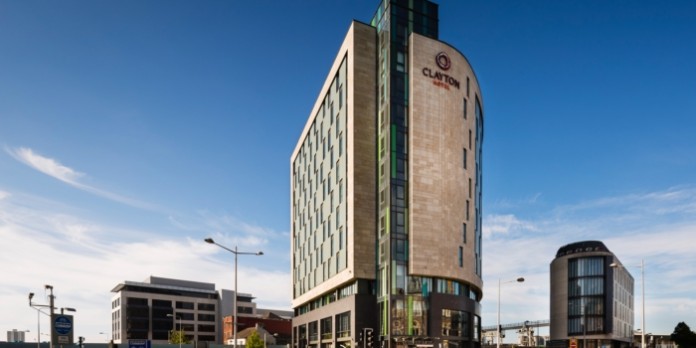The Cardiff hotel market is outperforming most other UK cities and is fast becoming a hotspot for investors, developers and operators in this sector, says property consultancy JLL.
The average room rate (ARR) and occupancy levels have increased dramatically in the last three years, and are now higher than many other city centres including UK and regional averages.
JLL’s research shows that ARR has grown from £62 per night in 2014 to £68 today. In the same period, average occupancy has steadily increased from 76 per cent to 81 per cent. Searches for stays in the Welsh capital are also up from last year by 220 per cent compared to the closest European rival of Dublin which has seen an increase of 35 per cent.
Richard Servidei, director at JLL, said: “Cardiff’s economy is thriving and the financial services sector has grown faster here than in any other UK city in the past decade. Similarly, its appeal as a holiday destination has grown and, according to several booking websites, its popularity more than tripled in summer 2017 compared to summer 2016.
“As the city has expanded, hotel development has not and as a result demand is far outstripping supply. We are seeing a lot of interest from UK institutions wanting to invest in Cardiff’s existing high value assets. Similarly, many of the major hotel operators and developers are on the hunt for opportunities in the city.
Justin Millett, director of capital markets at JLL’s Cardiff office, said: “The challenge for Cardiff will be unlocking hotel development opportunities. The right spots for prime leisure facilities are few and far between as it’s a compact city so, while the money and appetite from investors is there, this won’t necessarily translate into an active pipeline of development.
“If this can be overcome, there is a tremendous opportunity for Cardiff’s hotel and leisure offer. It’s important for the local and regional economy that as many visitors as possible are kept in the city rather than being lost to other nearby places such as Bristol.
“Up until now, the Cardiff office and residential markets have attracted more investment as both are performing very well. As hotel yields compress, this could unlock further development in the city’s hotel sector.”
Operators to have had recent successes in the city include Premier Inn, which submitted plans in June for a 20-storey hotel with a bar and restaurant on the site of the former Custom House and York Hotel buildings. JLL’s Cardiff and London offices are currently advising on the acquisition of the site on behalf of a UK institution.
Earlier this year, Dalata Hotel Group carried out a sale and leaseback of its Clayton Hotel in Cardiff. The purchaser was M&G Real Estate which paid around £22m for the property.
Richard Servedei added: “Cardiff is one of very few places in the UK where demand for hotels outstrips supply. The success of landmark developments such as the Principality Stadium, Cardiff University, Cardiff Bay Central Square and the International Sport Village, means that the hotel market needs to keep pace with all of this.
“Cardiff City Council estimates that 18 million people visit the city each year, supporting more than 13,000 jobs annually. As a result, we expect Cardiff to remain at the top of the list for hotel investors.”



















